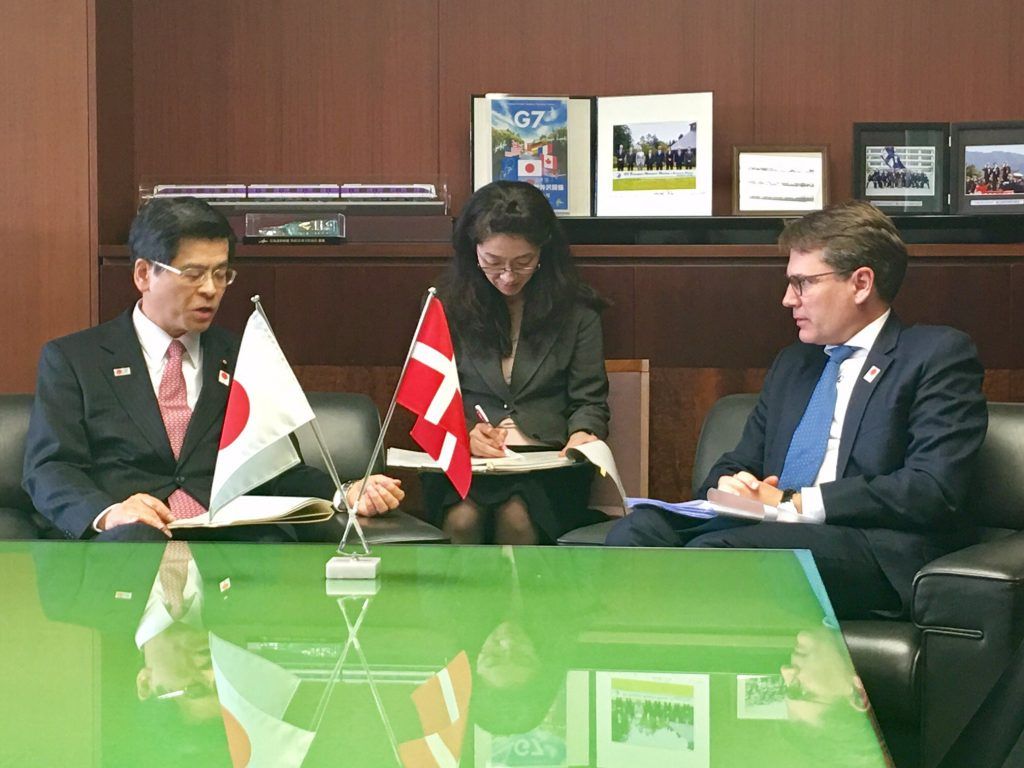The business minister, Brian Mikkelsen, is in the Land of the Rising Sun this week to prepare for Denmark’s participation in the 2020 Olympics in Tokyo and shore up maritime trade and development with Japan.
Tokyo 2020 will not only set the stage for the pinnacle of Danish sports prowess, but with upwards of one millions guests being hosted, the Olympic Games will also offer a window of opportunity for Danish business and marketing acumen.
“I want to make the 2020 Olympic Games in Tokyo a fantastic exhibition window for Denmark, where we can show all that Denmark has to offer,” said Mikkelsen.
“We will meet with the Japanese organisers and discuss how, from a Danish perspective, we can create awareness about Denmark and contribute to lift the event outside the sporting arenas.”
READ MORE: Denmark and Japan celebrating diplomatic anniversary in style
150 years of diplomacy
As part of his stay, Mikkelsen will meet with the Japanese minister for the Olympics, Tamayo Marukawa, and Japan’s former PM and current head of the nation’s Olympic Organising Committee, Yoshiro Mori.
During last summer’s Olympic Games in Rio, almost 200,000 people visited the Danish Olympic pavilion ‘Heart of Denmark’, which was located on Ipanema Beach and helped market Denmark’s green solutions, sustainability and tourism options.
Aside from the Olympic topic, Mikkelsen will also meet the Japanese minister of land, infrastructure and tourism, Keiiche Ishii, in an effort to boost the maritime co-operation between the two countries.
Denmark and Japan celebrate 150 years of diplomatic ties this year with a number of political, cultural and commercial activities.
Astellas in CPH
In related news, the Japanese pharmaceutical giant Astellas has announced that it has consolidated all of its corporate support assets to its Nordic and Baltic sales units in Denmark.
The company stated the nation’s unique geography and business environment as key reasons for choosing Copenhagen over other major Nordic hubs.
“In Stockholm, 90 percent of our employees would be Swedish, in Oslo they would be Norwegian, and in Finland they would be Finns. But in Copenhagen, we have employees with four Nordic nationalities, with a majority of Danes and Swedes,” said Anders Nordén, Astellas’ GM of Nordic & Baltic Operations.
“This makes our work environment multicultural with a strong local market understanding of all our markets – which is important, because despite the global perception that the Nordic region is one homogeneous market, there are differences between the countries.”















